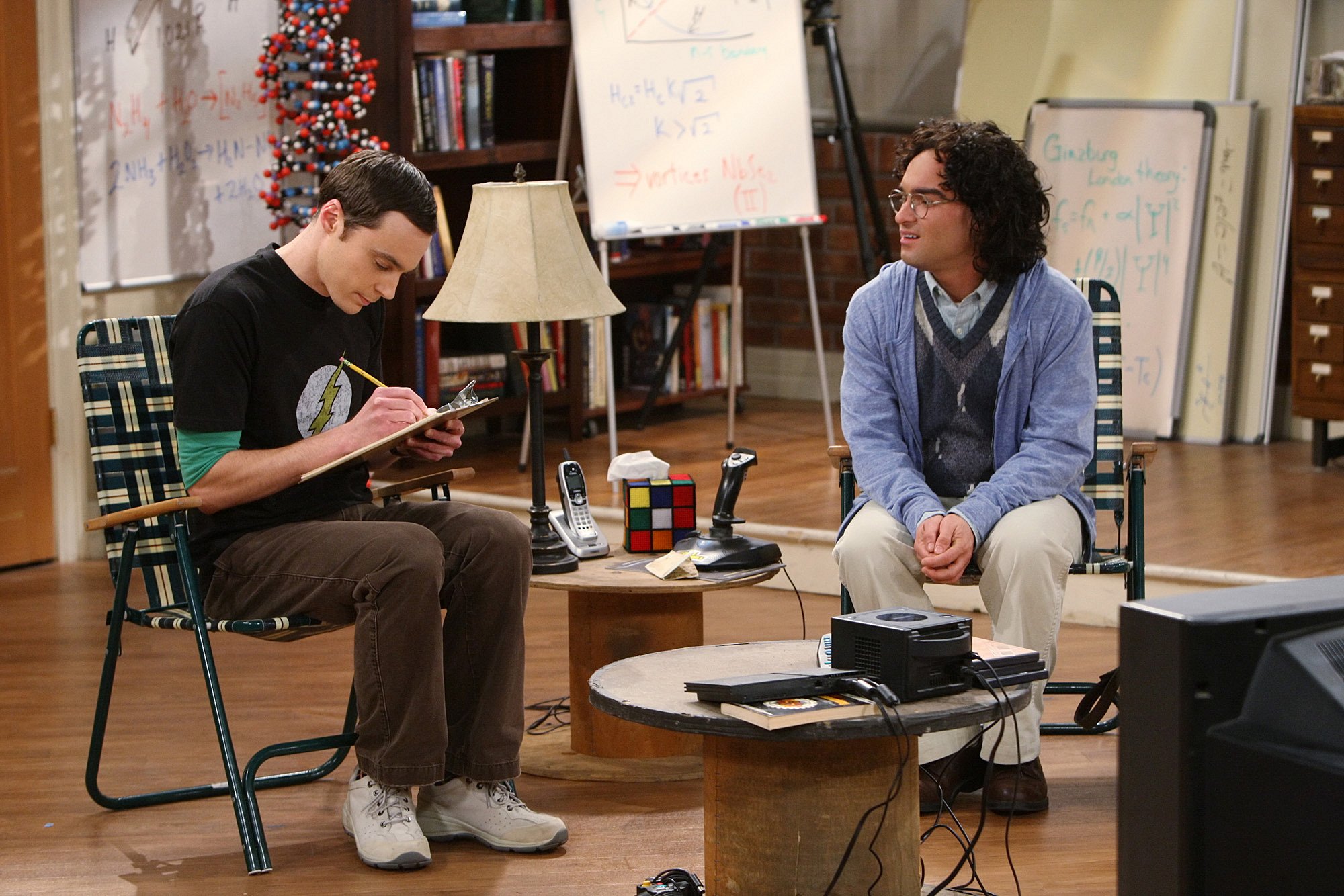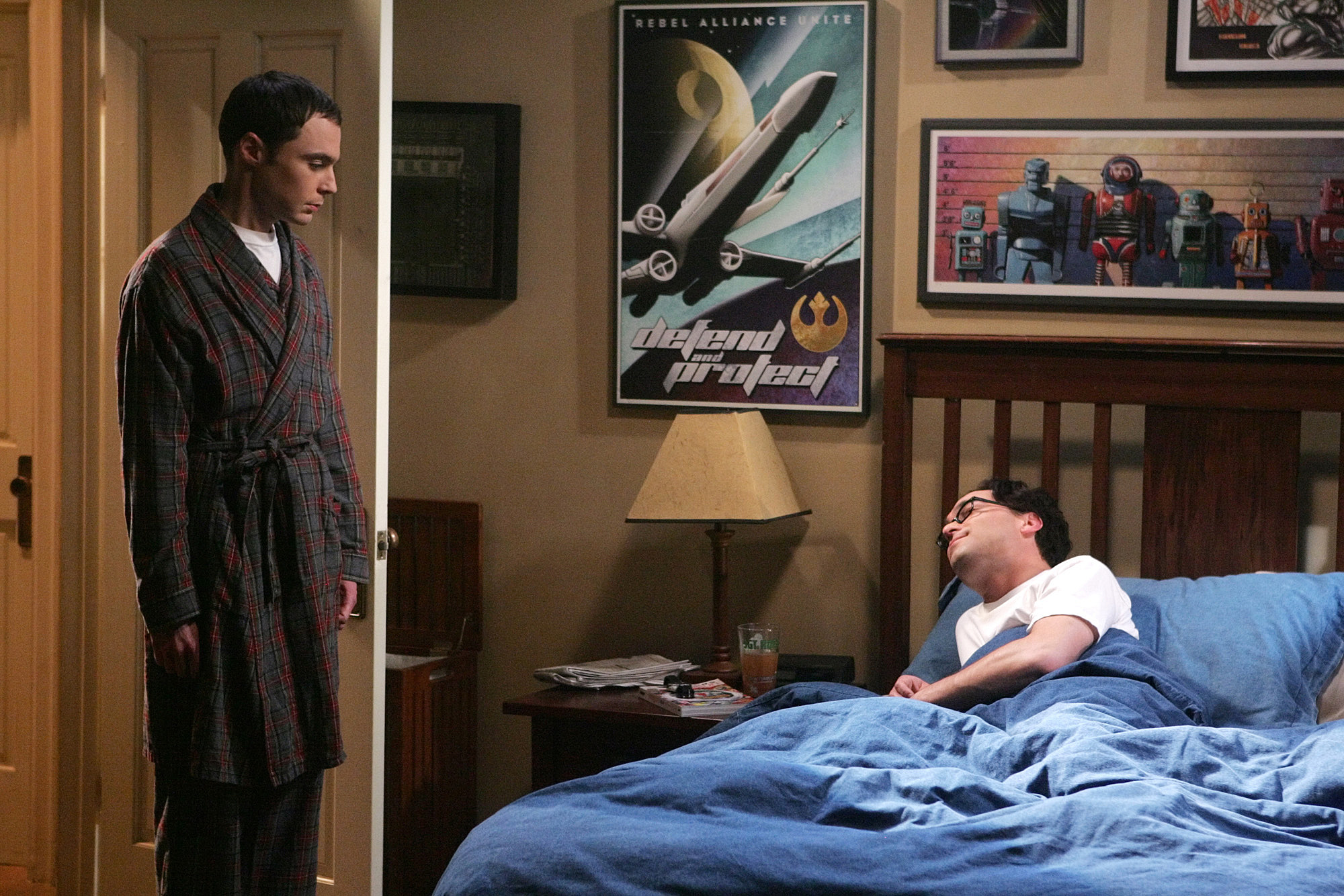‘The Big Bang Theory’: 3 Of The Strangest Rules From The Roommate Agreement
The Big Bang Theory is, arguably, one of the most successful sitcoms of all time. While the show featured an ensemble cast, fans point to Sheldon Cooper as the reason for its unexpected success. For some fans, Sheldon’s quirks and his roommate, Leonard Hofstadter’s willingness to go along with his demands, made the show interesting. Do you remember some of the more intense clauses contained in the pair’s Roommate Agreement?
Most of Sheldon’s rules were quirky but almost understandable
Sheldon’s quirks were part of his charm, and they were on full display every time the Roommate Agreement was pulled out for reference. While Sheldon had many wild scenarios listed in the agreement, the most basic rules were perhaps the most oppressive for Leonard. After all, the basic rules pertained to things that could actually happen.

In the season 3 episode, “The Staircase Implementation,” it is revealed that Leonard agreed to a coitus clause in the roommate agreement. Under the clause, the two roommates had to give each other at least 12 hours of notice before any sexual activity could commence in the apartment. Similarly stifling, Leonard agreed to drive Sheldon to all his appointments. He also allowed Sheldon to control the places they were allowed to eat with meetings and trial periods.
Sheldon wrote several improbable scenarios into the Roommate Agreement
Sheldon had everything covered when it came to the Roommate Agreement. In fact, he dreamt up several improbable scenarios into the agreement to ensure he and Leonard were on the same page about everything. In Section 9, Sheldon outlined precisely what the duo would do if one of them invented time travel. Robotics and artificial intelligence were also considered when he drafted the contract. According to Fandom, Section 74C made it clear that Leonard would assist Sheldon in the event that he became a robot.
There was a clause about Godzilla, as well as clauses pertaining to zombies. An additional clause outlined exactly how Leonard and Sheldon would deal with a person if they had reason to believe they were replaced with an alien look-a-like. While all of the scenarios mentioned above were infinitesimally unlikely to happen, Leonard had to agree to them to maintain a residence in the apartment.
Some clauses in the Roommate Agreement weren’t needed
While some clauses included in the roommate agreement were a little wacky, some weren’t needed at all. A clause about what would be viewed on Friday evenings, for example, was completely unnecessary. In season 3, Sheldon mentions that the Roommate Agreement stated that Friday nights were reserved for watching Firefly. The clause was written into the agreement under the assumption the show would be on for years.

Firefly had a loyal, albeit small following, during its original release. The series first aired in 2002, but by 2003 it was canceled. The show, which aired on Fox, was canceled after just one season. Dedicated fans attempted to petition other networks to pick up the series. It didn’t happen. According to SyFy, fans were able to get a feature film based on the show made. The film, Serenity, wasn’t nearly as popular as the TV show.


